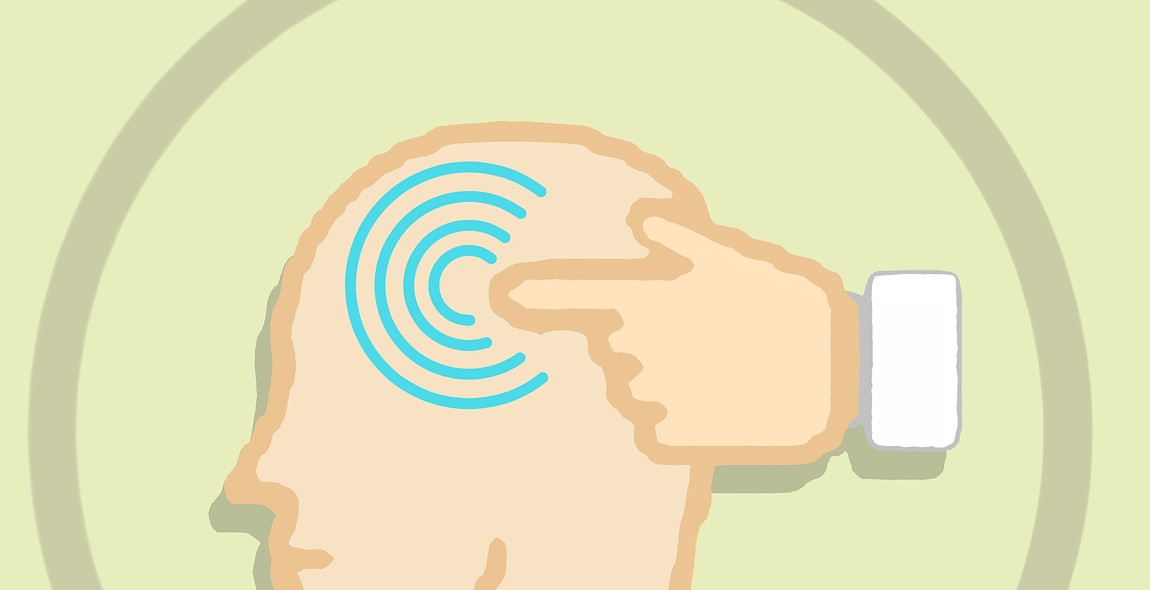The Power of Positivity: How Optimism Boosts Mental Health
As a professional article writer and content creator with over 10 years of experience, I have seen firsthand the impact that positivity can have on mental health. In my personal life, I have also experienced the power of positivity and how it can change one’s outlook on life.
My Personal Experience with the Power of Positivity
A few years ago, I went through a difficult time in my life. I was struggling with anxiety and depression, and it seemed like nothing could lift my spirits. However, I decided to make a conscious effort to focus on the positive things in my life. I started a gratitude journal, where I wrote down three things I was grateful for every day. I also made an effort to surround myself with positive people and engage in activities that brought me joy.
Slowly but surely, I began to notice a shift in my mindset. I felt more optimistic and hopeful about the future. My anxiety and depression began to lift, and I felt more motivated to pursue my goals and dreams.
The Science Behind Positivity
My personal experience is backed up by scientific research. Studies have shown that positivity and optimism can have a significant impact on mental health. Optimistic people tend to have lower levels of stress, better coping mechanisms, and a more positive outlook on life. They are also less likely to develop depression and anxiety.
In this article, we will explore the power of positivity in more detail and how it can boost mental health.

What is Positivity?
Positivity is a mental and emotional state characterized by optimism, hope, and confidence. It is the ability to focus on the good and positive aspects of life, even in the midst of challenges and difficulties. Positivity is not simply a fleeting emotion or a temporary feeling of happiness; it is a way of thinking and approaching life that can have a profound impact on mental health and overall well-being.
Defining Positivity
Positivity is often described as the opposite of negativity. While negativity is characterized by pessimism, cynicism, and a focus on problems and obstacles, positivity is characterized by optimism, hope, and a focus on solutions and opportunities. Positivity is not about denying or ignoring the challenges and difficulties of life, but rather about approaching them with a positive and constructive mindset.
Positivity can be cultivated through various practices, such as gratitude, mindfulness, and positive self-talk. These practices help individuals to focus on the good in their lives, appreciate the present moment, and develop a sense of self-worth and confidence.
The Benefits of Positivity
Research has shown that positivity can have numerous benefits for mental health and overall well-being. For example, studies have found that positivity can:
- Reduce symptoms of depression and anxiety
- Improve resilience and coping skills
- Boost immune function and physical health
- Enhance social relationships and support networks
- Increase creativity and problem-solving abilities
Overall, positivity is a powerful tool for promoting mental health and well-being. By cultivating a positive mindset and focusing on the good in life, individuals can experience greater happiness, resilience, and overall life satisfaction.

How Positivity Boosts Mental Health
Positivity is a powerful tool for improving mental health. It can help reduce stress and anxiety, improve self-esteem and confidence, and increase resilience and coping skills. Here’s a closer look at how positivity can have a positive impact on mental health:
Reducing Stress and Anxiety
Stress and anxiety are common mental health issues that can have a negative impact on overall well-being. However, adopting a positive attitude can help reduce stress and anxiety levels. When we focus on positive thoughts and experiences, we’re less likely to dwell on negative experiences and emotions that can trigger stress and anxiety. This can help improve our overall mood and reduce the physical symptoms associated with stress and anxiety, such as headaches, muscle tension, and fatigue.
Improving Self-Esteem and Confidence
Positivity can also play a key role in improving self-esteem and confidence. When we focus on our strengths and accomplishments, we’re more likely to feel good about ourselves and our abilities. This can help boost self-esteem and confidence, and make us feel more capable of taking on new challenges and achieving our goals. When we feel good about ourselves, we’re also more likely to have positive relationships with others, which can further improve our mental health.
Increasing Resilience and Coping Skills
Another way positivity can boost mental health is by increasing resilience and coping skills. When we face challenges and setbacks, a positive attitude can help us stay motivated and focused on finding solutions. This can help us develop resilience and coping skills that we can use in future situations. By focusing on positive aspects of a situation, we can also gain a new perspective and find opportunities for growth and learning.
Overall, positivity can have a powerful impact on mental health. By reducing stress and anxiety, improving self-esteem and confidence, and increasing resilience and coping skills, positivity can help us lead happier, healthier lives.

The Science of Positivity
Optimism and positivity have been found to have a significant impact on mental health and well-being. The science behind this phenomenon is fascinating and shows the power of the human brain to change and adapt.
Neuroplasticity and Positive Thinking
Neuroplasticity is the brain’s ability to change and reorganize itself. Studies have shown that positive thinking can actually rewire the brain, making it more resilient and better able to handle stress. When we focus on positive thoughts and emotions, the brain releases chemicals that promote neural connections and growth.
The Role of Dopamine and Serotonin in Positive Emotions
Dopamine and serotonin are neurotransmitters that play a significant role in our emotional well-being. Dopamine is associated with pleasure and reward, while serotonin is linked to feelings of happiness and well-being. When we engage in positive thinking and behaviors, the brain releases these chemicals, creating a sense of happiness and satisfaction.
The Power of Gratitude and Mindfulness
Gratitude and mindfulness are two powerful tools for cultivating positivity. Gratitude involves focusing on the good things in our lives and expressing appreciation for them. Mindfulness involves being present in the moment and fully engaged in our experiences. Both practices have been shown to reduce stress and anxiety, increase happiness, and improve overall well-being.
- Gratitude journaling is a simple and effective way to cultivate gratitude. Each day, write down three things you are grateful for.
- Mindfulness meditation involves focusing on your breath and being fully present in the moment. It has been shown to reduce stress and anxiety and improve overall well-being.
| Benefits of Positivity |
|---|
| Reduces stress and anxiety |
| Improves mood and happiness |
| Increases resilience and adaptability |

Tips for Cultivating Positivity
Positivity is a powerful tool that can help boost mental health and overall wellbeing. Here are some tips for cultivating positivity:
Practice Gratitude
One of the easiest ways to cultivate positivity is by practicing gratitude. Take time each day to reflect on the things you are grateful for. This can be as simple as writing down three things you are grateful for each day or taking a moment to appreciate the small things in life.
Surround Yourself with Positive People
The people you surround yourself with can have a big impact on your mental health. Seek out positive, supportive people who uplift and inspire you. Distance yourself from negative influences and toxic relationships that drain your energy and bring you down.
Engage in Activities That Bring You Joy
Engage in activities that bring you joy and make you feel good. This could be anything from spending time in nature, listening to music, or practicing a creative hobby. Make time for these activities regularly to boost your mood and overall wellbeing.
Challenge Negative Thoughts
Negative thoughts can quickly spiral out of control if left unchecked. Challenge negative thoughts by questioning their validity and replacing them with positive affirmations. This can take practice, but over time, it can help shift your mindset and cultivate a more positive outlook.
Take Care of Your Physical Health
Physical health and mental health are closely linked. Taking care of your physical health can help boost your mood and overall wellbeing. This includes eating a healthy diet, getting regular exercise, and getting enough sleep each night.
| Tips for Cultivating Positivity |
|---|
| Practice Gratitude |
| Surround Yourself with Positive People |
| Engage in Activities That Bring You Joy |
| Challenge Negative Thoughts |
| Take Care of Your Physical Health |
By practicing gratitude, surrounding yourself with positive people, engaging in activities that bring you joy, challenging negative thoughts, and taking care of your physical health, you can cultivate positivity and boost your mental health and overall wellbeing.

Conclusion
In conclusion, cultivating a positive mindset is crucial for maintaining good mental health. Optimism helps to reduce stress, anxiety and depression while increasing resilience and overall well-being.
The Benefits of Positivity
Studies have shown that people who think positively tend to live longer, healthier lives. A positive outlook can help to boost your immune system, lower blood pressure, and reduce the risk of chronic illnesses such as heart disease and diabetes.
The Power of Gratitude
One way to cultivate positivity is by practicing gratitude. Taking time to acknowledge and appreciate the good things in your life can help shift your focus away from negative thoughts and emotions.
Surround Yourself with Positivity
It’s important to surround yourself with positive people and environments. This can mean spending time with friends and family who uplift and support you, or finding activities and hobbies that bring you joy and fulfillment.
